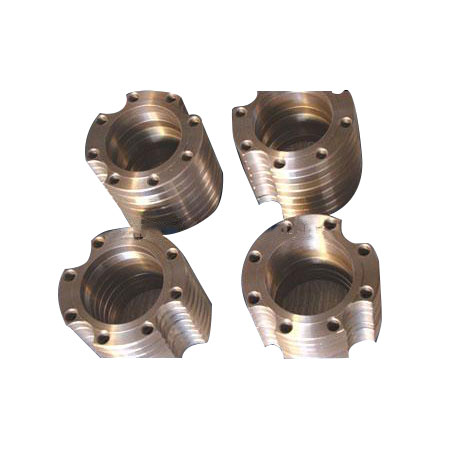Information about stainless steel special flanges
2023-10-16
Stainless steel special flanges are specialized flanges made from stainless steel, a corrosion-resistant alloy known for its durability and strength. These flanges are designed for specific applications that require unique dimensions, configurations, or features beyond standard flange designs. Here's some important information about stainless steel special flanges:
Design and Construction: Stainless steel special flanges are fabricated to meet specific requirements based on the application. They can be designed with unique shapes, sizes, bolt-hole patterns, face types, and sealing surfaces. The construction of these flanges involves precision machining or forging techniques to ensure accurate dimensions and a high-quality finish.
Material Selection: Stainless steel is the primary material used for special flanges due to its excellent corrosion resistance, high tensile strength, and durability. Common stainless steel grades used include 304, 316, 321, and 347, among others. The choice of stainless steel grade depends on factors such as the application's temperature, pressure, and corrosive environment.
Applications: Stainless steel special flanges are used in various industries and applications, including:
1. Petrochemical and Chemical Processing: Special flanges are employed in equipment and piping systems handling corrosive fluids and chemicals.
2. Oil and Gas: These flanges are utilized in offshore platforms, refineries, and pipelines that require resistance to harsh environments and high-pressure conditions.
3. Power Generation: Special flanges are used in power plants, including nuclear, thermal, and renewable energy installations, where high-temperature and high-pressure conditions are present.
4. Food and Beverage: Stainless steel special flanges are employed in hygienic and sanitary applications, ensuring cleanliness and preventing contamination.
5. Pharmaceutical and Biotechnology: These industries require flanges that meet strict cleanliness and sterility standards to prevent product contamination.
Considerations:
1. Specifications: Stainless steel special flanges should be designed and manufactured according to specific industry standards, such as ASME (American Society of Mechanical Engineers), ASTM (American Society for Testing and Materials), or DIN (Deutsches Institut für Normung), depending on the application and region.
2. Customization: When ordering stainless steel special flanges, provide detailed specifications and requirements, including dimensions, material grade, face type (such as raised face or flat face), pressure rating, and any unique features or certifications needed.
3. Professional Guidance: Consult with engineers or experienced professionals who specialize in flange design and selection to ensure the appropriate type of flange is chosen for the specific application.
4. Quality Assurance: Source stainless steel special flanges from reputable manufacturers or suppliers who follow strict quality control measures and provide proper documentation, such as material certificates and traceability.
Proper installation of stainless steel special flanges should follow industry best practices, including appropriate torque specifications, gasket selection, and compliance with installation guidelines. This helps ensure a secure and leak-free connection within the piping system.



